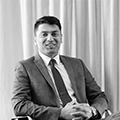Articles
Corruption and Extortion inRussia and Ukraine
Saif Islam discusses the prevalence of corruption and extortion in Russiaand Ukraine amid the regional economic contraction, which had a negativeimpact on investor confidence in 2015.
Over 2015, corruption remained a deep-rooted phenomenon among the Commonwealth of Independent States (CIS). Unsurprisingly, according to Transparency International’s 2015 Corruption Perceptions Index, only two countries from the CIS region are ranked among the top 100 countries, perceived to be least corrupt: Georgia (48) and Armenia (95). Russia and Ukraine, on the other hand, are ranked 119th and 130th respectively.
In his December 2015 state of the nation address, Russian President Vladimir Putin acknowledged that corruption and extortion are major problems in Russia. He stated that in 2014, of the 200,000 business-related criminal cases investigated by Russian authorities, only 15 percent ended in convictions – yet, 83 percent of those investigated had their businesses expropriated. Putin admitted that the expropriation of private businesses along with other extortionist practices by state officials, have hurt the country’s business climate. Russia’s judicial branch has also been involved in high-profile corruption scandals, with corruption allegations recently levelled against prosecutor General Yury Chaika’s family, his office and the Investigative Committee of Russia.
Ukraine’s pro-Western government led by President Petro Poroshenko has also come under criticism for failing to combat corruption. Over the past year, there has been some progress in terms of implementing anti-corruption reforms. These reforms include improving whistle-blower protection, new mechanisms to curb corruption in public procurement, and legislation on political party financing. Nevertheless, the measures have not been far-reaching or effective enough to make a meaningful impact. Notably, critics have accused the country’s prosecutor general, Viktor Shokin, of protecting corrupt political and business figures. These have included Volodymyr Shapakin, a chief director in Shokin’s office, who was arrested in July 2015 on suspicion of taking bribes and running extortion rackets. Shokin has since been asked to resign as a result of the allegations.
In the context of a global and regional slump, Russia and Ukraine’s economic growth prospects for 2016 are modest. Authorities have limited options to revive their economies, although a lasting resolution to the armed conflict in Eastern Ukraine would certainly help. Clamping down on corruption and extortion activities could also go a long way towards boosting investor confidence in this economic climate.
